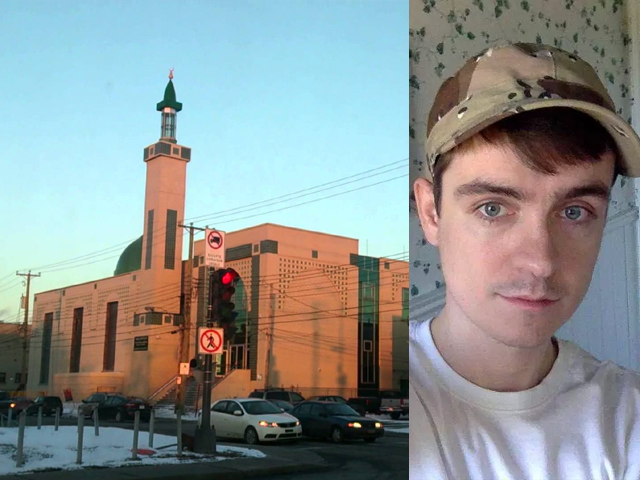
The well-remembered Gandhi, but the oft-forgotten Bacha Khan
The great leader is remarkably absent from many Pakistani history books — or, worse, referred to in passing.
When we look back at our history, almost every country in the world has experienced some form of foreign occupation, colonisation, massive violence and bloodshed simply based on either regional, religious, ethnic, or racial conflict. And while most of the leaders, who’ve led such warfare and occupations, have been violent and tyrannical, there have also been a few, very few, leaders who have gone against the status quo, and only believed in and promoted non-violence.
These exceptional leaders have hailed from all over the world, of which some prominent examples include Baha’u’llah from Persia, Martin Luther King Jr from America, the Dalai Lama from Tibet, Nelson Mandela from South Africa, Mohandas Gandhi from India, and Khan Abdul Ghaffar Khan from our very own Pakistan.
Yesterday, January 20, marked the 27th death anniversary of Khan Abdul Ghaffar Khan, also widely known as ‘Bacha Khan’ – translating to ‘King Khan’ from Pashto. Born in 1890, in the town of Utmanzai in what was formerly known as the ‘North West Frontier Province’, in India, Bacha Khan dedicated the majority of his life teaching his fellow Pukhtuns the value of tolerance. His main exertion often centred on their education, mannerism, self-respect, well-being and self-reliance.
Though he lived a fairly long life, roughly one out of every three days of his life were spent in prison — eventually even surpassing the number of years the legendary Mandela had spend in jail. And this was mainly due to his activities towards the betterment of Pukhtuns, which worried both the religious leaders and British rulers, who speculated threats to their power in the subcontinent. Following the partition of 1947, Bacha Khan – being a close friend of Gandhi and a staunch Pukhtun nationalist – suffered severely at the hands of the Pakistani establishment; his alleged separatist sentiments often putting him on the wrong side of those in power.
His passion towards education, for both girls and boys, and the creation of schools in villages especially created quite a melee; his work was not seen as positive reinforcement but taken instead as ‘rebellion’ – an opposition. And, yet, despite being constantly persecuted, Bacha Khan incessantly defied their ill-intentions and retaliated with selfless devotion and preaching of nonviolence.
Often compared to Mohandas Gandhi, whom he met in 1919, he was given the title of the ‘Frontier Gandhi’. However, I personally disagree with this title simply because Bacha Khan is his own unique person and should never have to be referred to or viewed in someone else’s shadow (or name, in this case). And, though he and Gandhi shared similar visions, they were undoubtedly two quite distinct individuals.
Shortly after meeting Gandhi, for two decades thereafter Bacha Khan and his army of Red Shirts, a nonviolent, democratic and secular liberation movement that he founded called the ‘Khudai Khidmatgars’ (Servants of God), struggled alongside Gandhi and the Congress party for a united, democratic and secular India. The British, in turn, responded brutally by carrying out a terrible massacre at the Qissa Khawani Bazaar (the storytellers’ market) in the then peaceful Peshawar city in 1930, where it was their first major confrontation with the non-violent demonstrators.
It was the Khudai Khidmatgar’s dedication to Bacha Khan and his approach to nonviolence that infuriated and perplexed the British even further, compelling them to torture and humiliate the great leader, resulting in countless accusations and imprisonment. Yet, Bacha Khan refused to be defeated, time and time again, notwithstanding his peaceful and liberal views, especially with regards to secularism and women’s rights.
He is famously quoted as saying,
“If you wish to know how civilised a culture is, look at how they treat their women.”
It was here that Bacha Khan became a Pukhtun folk hero. There is no doubt that his incredible life and struggle for peace are one of the greatest unprecedented stories of our time.
Besides the excellent biographies written by Rajmohan Gandhi titled ‘Ghaffar Khan: Nonviolent Badshah of the Pukhtuns’ and Eknath Easwaran’s, ‘Nonviolent Solider of Islam’, there is a brilliant documentary by Teri McLuhan, called ‘The Frontier Gandhi – Badshah Khan, A Torch For Peace’. Very little is otherwise known and written about Bacha Khan, especially in the West. Even more unfortunate is the fact that almost everyone in the world knows (and talks/writes) about Mahatma Gandhi, yet not too many people do so about Bacha Khan.
The great leader is remarkably absent from many Pakistani history books — or, worse, referred to in passing. He has rarely been mentioned even in the media, until very recently, when Malala Yousafzai mentioned him in a speech she gave at the UN, in 2013, in which she stated,
“...This is the philosophy of non-violence that I have learnt from Gandhi jee, Bacha Khan and Mother Teresa. And this is the forgiveness that I have learnt from my mother and father. This is what my soul is telling me, be peaceful and love everyone.”
So, let’s commemorate this great man not only on his death anniversary, but every single chance we get. Do it in whatever manner you can; blog about him, write articles, make films, or just talk about him on social media – don’t forget your own. Let his struggles serve as a reminder that one doesn’t need to be violent in order to bring about change, for change can be possible through peaceful means as well.
It is about time the world learns from the struggles of this great non-violent leader.




COMMENTS (153)
Comments are moderated and generally will be posted if they are on-topic and not abusive.
For more information, please see our Comments FAQ